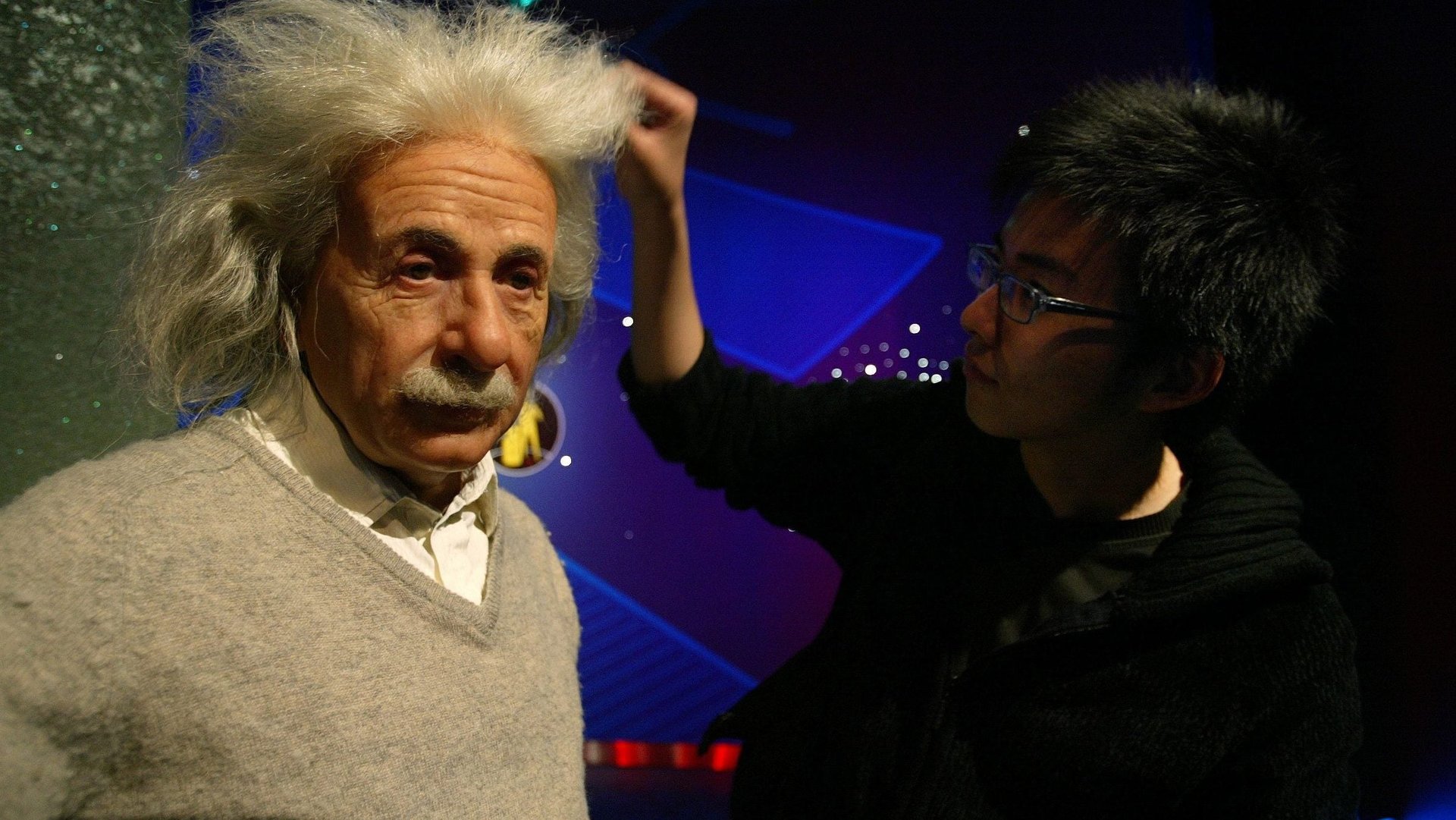Chinese internet users are surprisingly sympathetic to Einstein’s racist remarks
When Albert Einstein traveled to China as part of his tour of Asia in the 1920s, the physicist, known for his criticism of racism, turned into something of a xenophobe. In his private diaries, he described Chinese people as “industrious, filthy, obtuse,” along with other uncharitable observations—which people in China are receiving rather charitably.


When Albert Einstein traveled to China as part of his tour of Asia in the 1920s, the physicist, known for his criticism of racism, turned into something of a xenophobe. In his private diaries, he described Chinese people as “industrious, filthy, obtuse,” along with other uncharitable observations—which people in China are receiving rather charitably.
Einstein’s observations of China, they say, are to some extent simply telling it like it is—or rather was, at that point in China’s history.
“China was poor and lagging behind, sometimes there were famines, most of the people were illiterate… Babies died young so people had to have more children to ensure survival. It’s hard not to discriminate against a China like this,” wrote one user on the microblog site Weibo (all Weibo links in Chinese). “…Einstein wouldn’t even count if you are getting into talking about racism.”
The diaries, including Einstein’s account of his travels in 1922 and 1923 to Shanghai and Hong Kong—where he was riding the Peak Tram the day he was named the winner of the Nobel for physics—were translated from German to English, and published this year by Princeton University Press. Einstein’s perceptions of the Chinese are full of contradictions, noted the translation’s editor Ze’ev Rosenkranz. “He feels both empathy for their miserable plight yet also dehumanizes them in a series of very disturbing statements,” wrote Rosenkranz.
Einstein noted how hard the Chinese work in the face of “an insensitive economic machine”—but also described their way of life as dull and monotonous with the “houses very formulaic, balconies like bee-hive cells.” He called China a “peculiar herd-like nation,” and expressed the fear that the Chinese would take over the world.
“The Chinese may well supplant every nation through their diligence, frugality, and abundance of offspring,” he wrote, “… It would be a pity if these Chinese supplant all other races. For the likes of us the mere thought is unspeakably dreary.”
Many in China are saying the physicist’s remarks match their own impressions of what China must have been like in the early 20th century—when the country was in a transition period. It had just experienced a revolution to overthrow the last emperor of the Qing dynasty.
“I don’t think these are racist comments or humiliating descriptions,” wrote Siguan Xuantang on Weibo. “It’s more like a description of facts. Just look at the economic status, education, and hygiene conditions, which most of the common people wouldn’t care that much about because they didn’t have the conditions… He described them as obtuse and blunt but he also said people were industrious.”
Some noted Einstein’s descriptions are a lot like those of the famous Chinese writer Lu Xun, whose short stories depicted people’s suffering as they experienced the radical social changes of that time. “They are observant descriptions, just like Lu Xun, it was a criticism,” wrote Mingde Zhiying.
Another asked, “Do we treat people’s criticism differently just because Lu Xun was Chinese while Einstein was a foreigner?”